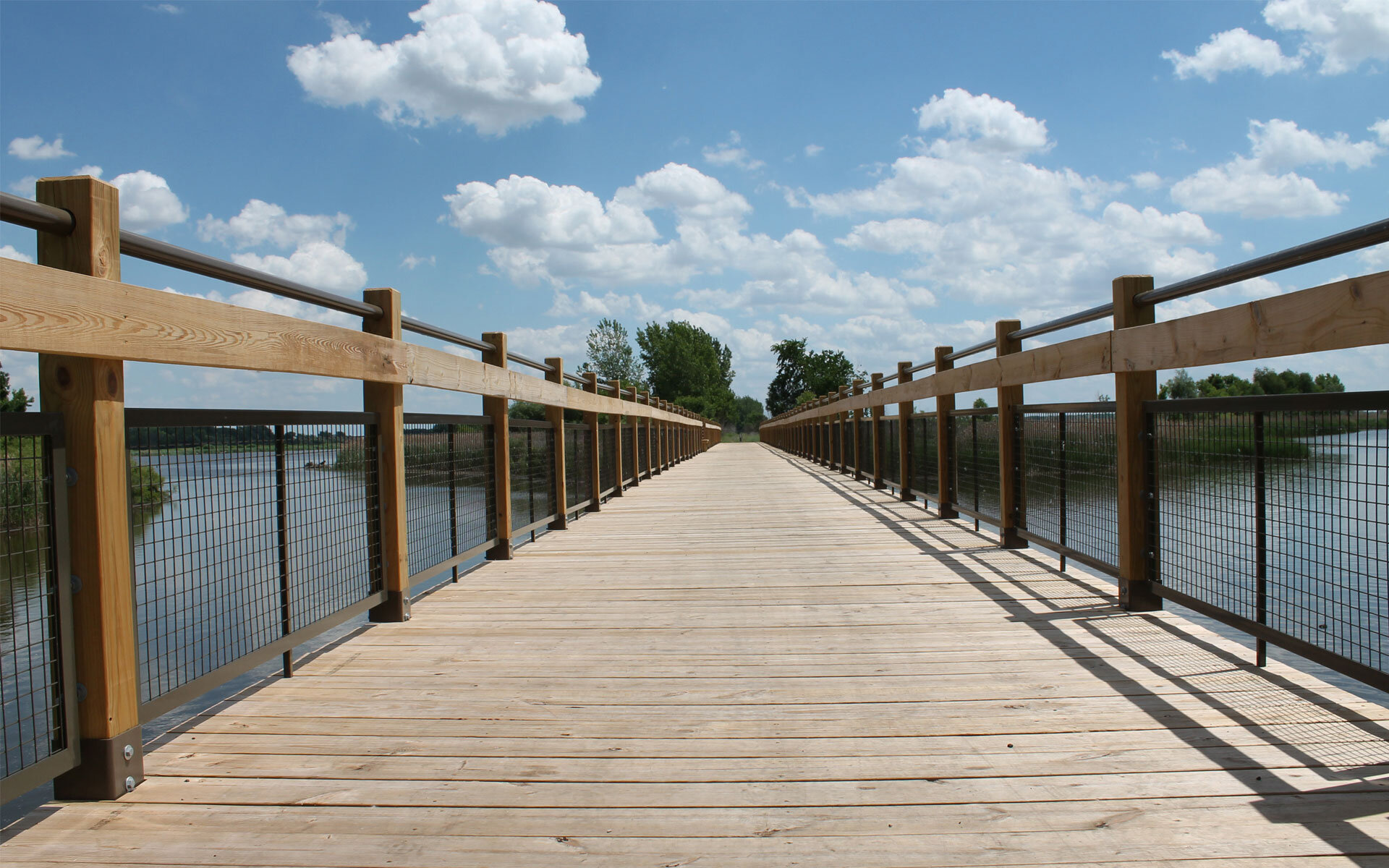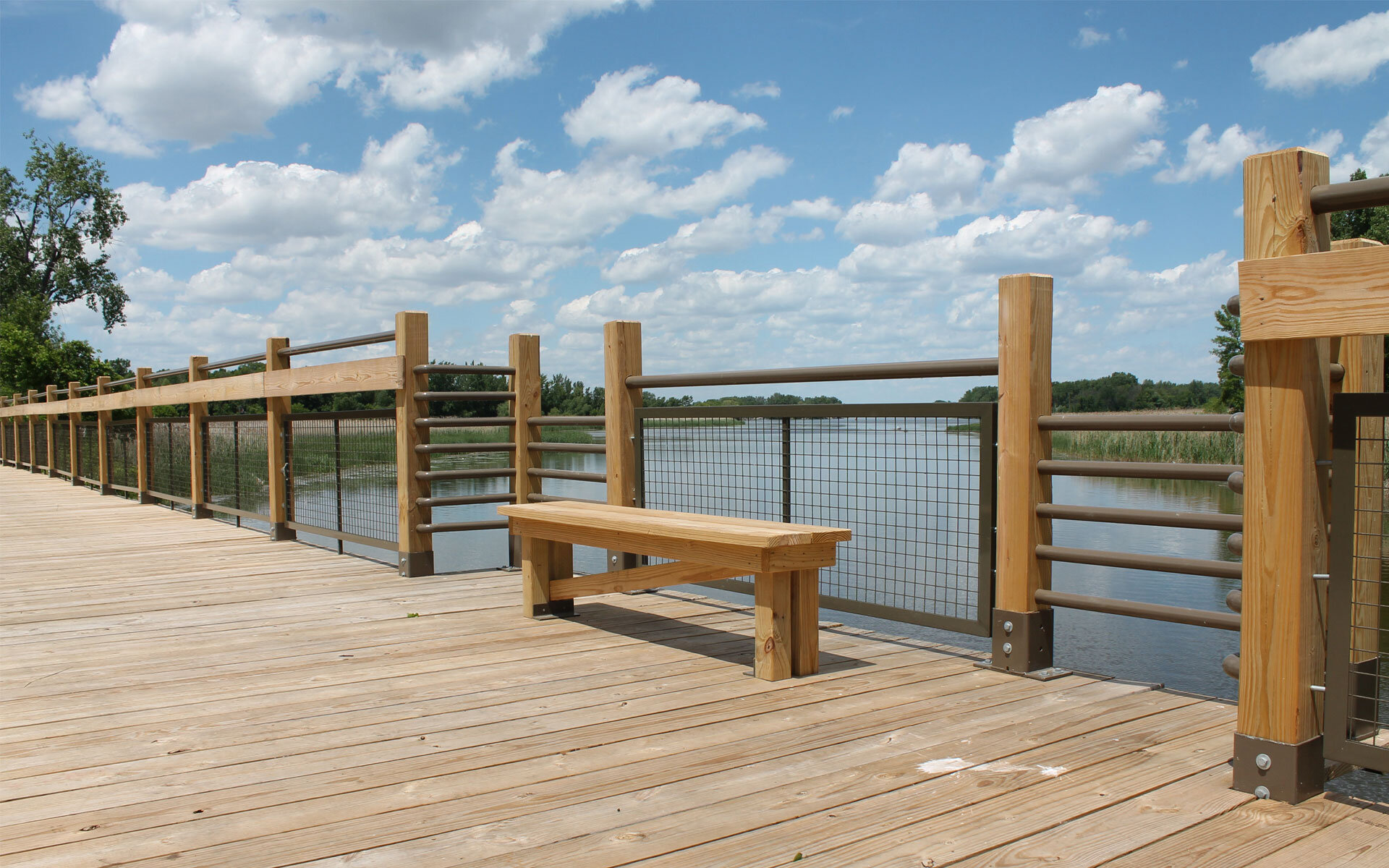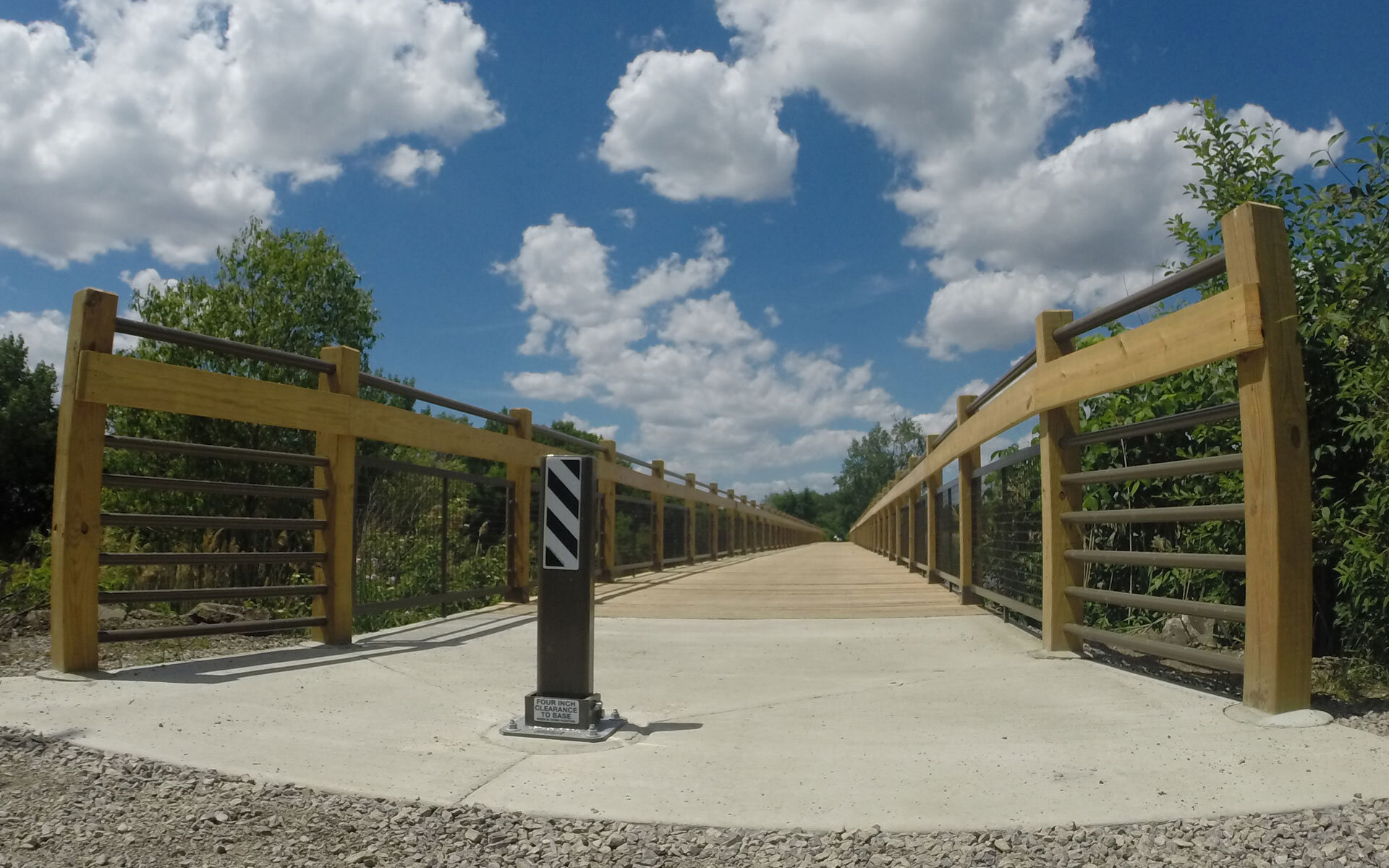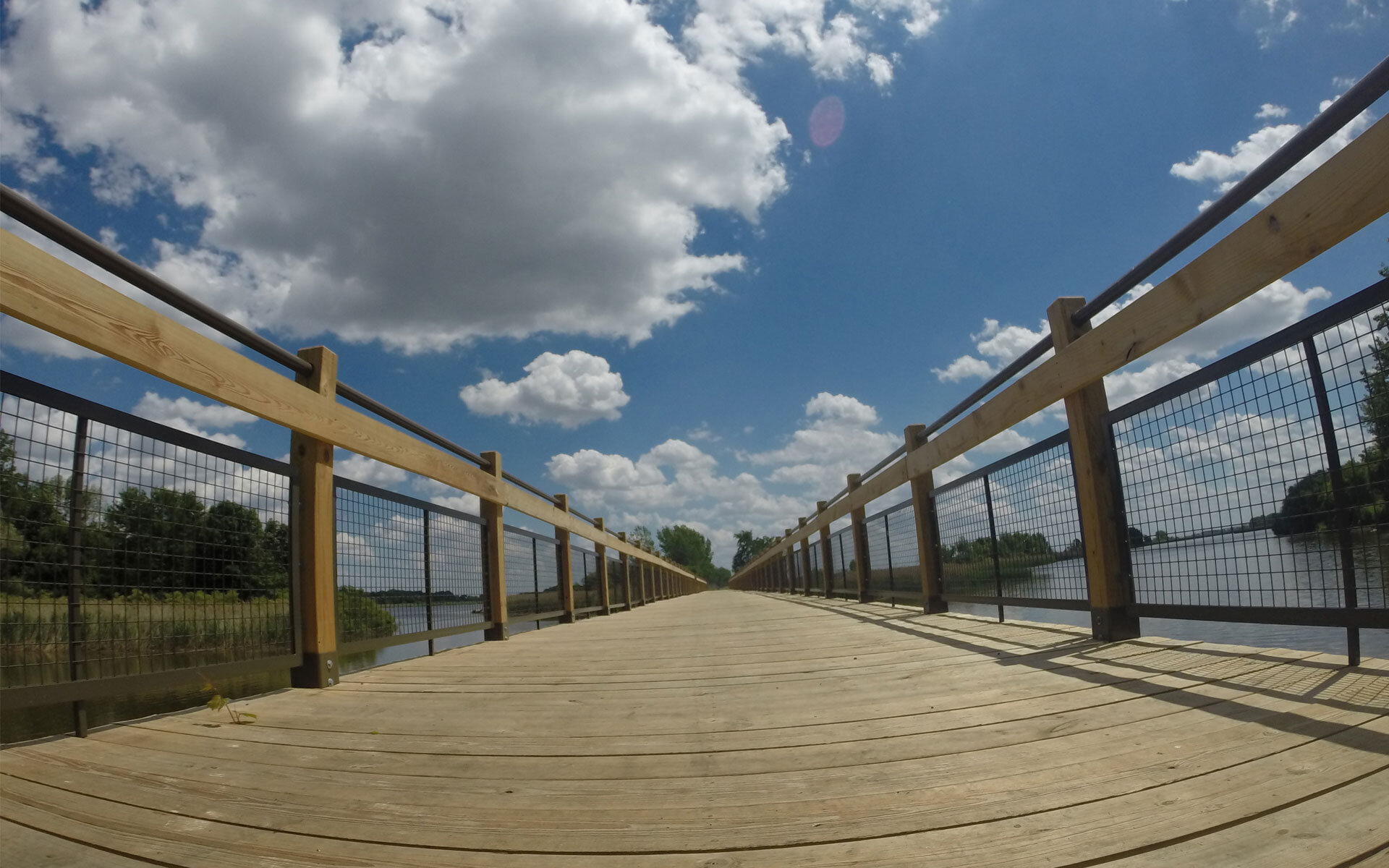Great Lakes Bay Regional Trail
The Great Lakes Bay Regional Trail committee (GLBRT) originated from a regional trail study that was completed by Spicer Group. The study outlines a preferred route to connect Bay, Midland and Saginaw Counties, as well as alternate routes. These routes were studied to define the challenges for development. With the study completed, it lays the groundwork to connect these communities and their existing path systems with a non-motorized path system. This trail system is part of the state-wide Iron Belle Trail.
Since the completion of the study, Spicer worked with MDOT to acquire a 6.2-mile rail corridor connecting Saginaw and Bay Counties. Along this corridor, multiple DNR Trust Fund grants have been awarded for the development of this corridor since 2011, totaling over $1,069,200. For all phases, Spicer Group assisted with grant writing and administration, design, permitting, bidding and construction administration.
A DNR Trust Fund acquisition grant was also awarded for $104,400. Spicer assisted with grant writing and administration and with the acquisition.
The next phase of development will be the connection between Saginaw and Midland Counties. Kochville Township and Tittabawassee Townships, which connect to each other, each received $400,000 from the Iron Belle Trail Fund and the Michigan Department of Natural Resources Trust Fund grants. This trail extension will be constructed in 2019.
Also in the Saginaw to Midland connection is a historic bridge over the Tittabawassee River which has been completely closed to all for over 30 years. An MDOT-TAP grant for over $2.3 million was submitted in 2019 for the renovation of the Smith’s Crossing Historic Bridge over the Tittabawassee River as a pedestrian bridge.
For all phases, Spicer Group assisted with grant writing and administration, design, permitting, bidding and construction administration.
A DNR Trust Fund acquisition grant was also awarded for $104,400. Spicer assisted with grant writing and administration and with the acquisition.
These trailways, when constructed, will provide close to 100 miles of multi-use trails that connect the Great Lakes Bay region.




